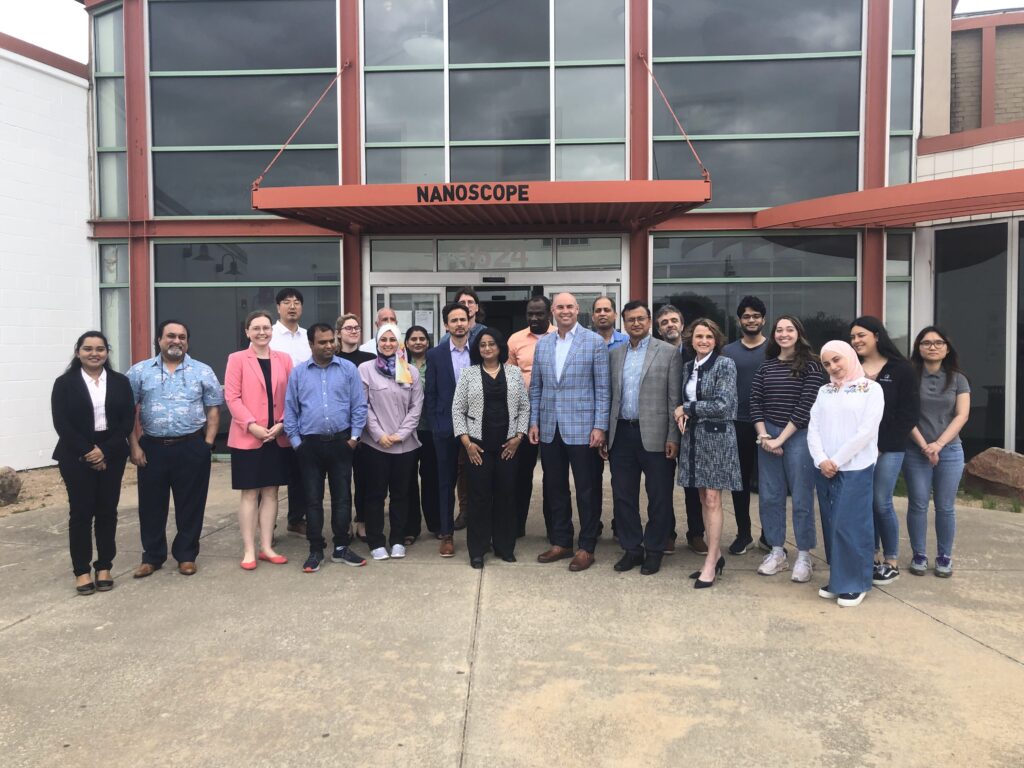Rachel King, the CEO of the Biotechnology Innovation Organization (BIO), shares insights about drug price controls and other challenges to the biotech industry that her organization is seeking to address in a pair of podcast interviews.
The price controls contained in the Inflation Reduction Act (IRA) do major harm to the biotech industry ecosystem that supports innovation, King tells Duane Schulthess, CEO of Vital Transformation in a podcast published on Sept. 7.
“I care deeply about the strength of that ecosystem and that’s where the concerns about the IRA come in,” says King. “I think it’s critically important for us as a society to be thinking about where we want to incentivize investment and to also be cautious about where we might be disincentivizing investment.”
Vital Transformation put together several reports for BIO looking at the impact of the IRA, and the law is a major topic of King’s Vital Transformation podcast interview, entitled “Taking the Helm Mid Drug Pricing Maelstrom.”
How can we improve the Inflation Reduction Act?
While King says the IRA is likely to be with us for some time, she expresses confidence that facets of the law can be improved.
As an example, King mentions the IRA’s disincentives against seeking secondary indications for orphan drugs that address rare diseases. She notes that the natural scientific process may lead researchers to test whether a drug that works against one kind of cancer can work against other cancers. But the IRA disincentivizes such research: It exempts orphan drugs from price controls, but only if the drug is used for one indication.
“I think that is a terrible aspect of the IRA that that you cannot go from one orphan indication from an innovation standpoint freely to other orphan indications that could follow,” she explains. “You’re going to be more constrained in the decision-making around taking on those other indications that might make good medical or biological sense, but that may no longer make economic sense.”
But it’s not only the industry that sees the problem. She says there is real opportunity to change the IRA.
“I think the fact that we need to make improvements is not an unusual thing from the legislative perspective, and I’m glad to hear as we have also started to hear, that some members of Congress are open to considering some changes,” King says. “I think that as people understand the impact of the current law. I think we’re going to be able to convince them that improvements need to be made to improve the incentives for innovation, and I’ve heard people on both sides of the aisle open to consideration.”
Biotech’s importance to Maryland
Speaking in a podcast published by the Maryland-based BioHealth Innovation on Sept. 5, King discusses the importance of biotech to that state’s economy. She recalls her long career in Maryland’s biotech industry, including as CEO of GlycoMimetics and Genetic Therapy, Inc., and, following a merger, as a senior vice president at Novartis.
In the BioTalk podcast with BioHealth Innovation CEO Rich Bendis, King explains the mission and goals of BIO, and describes how the scope of biotech is expanding, with environmental and agricultural aspects becoming increasingly important.
The need for BIO to address the IRA also comes up in Bendis’s podcast. King says her organization works with several aspects of the law.
“That’s an example where we need to be engaging with CMS (Centers for Medicare and Medicaid Services) because they’re implementing the existing law. And we also need to talk to Congress because we think there are things we’d like to change,” she says. “That’s very much at the heart of what BIO does is to try to build those relationships and affect those policies.”




